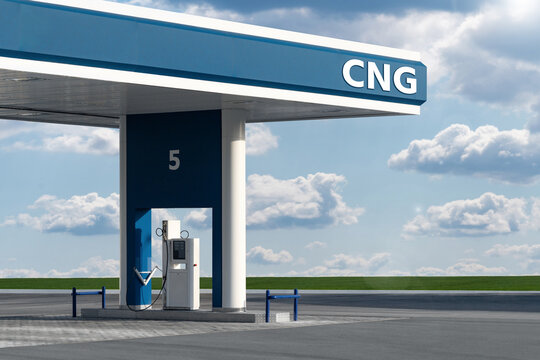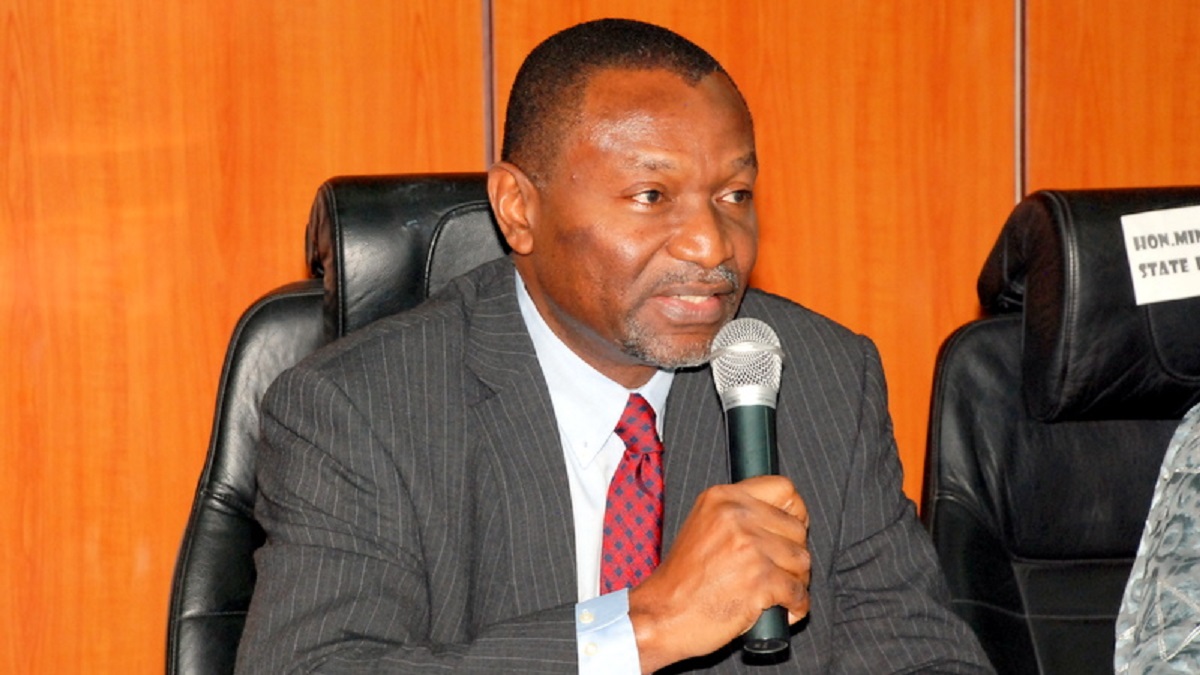Energy
Russia-Ukraine war affects Nigeria’s crude oil inflows – NNPCL
The Nigerian National Petroleum Company Limited (NNPC Ltd) has provided insight into how the lingering Russia – Ukraine war impacted Nigerian crude oil inflows in the international oil market.
The NNPC Ltd said this led to a dip in demand from the once-dependable Asian market at the onset of hostilities in the Eastern bloc.
Maryamu Idris, Executive Director, Crude and Condensate, NNPC Trading Limited made this known in a panel presentation at the Argus European Crude Conference in London.
Idris, in a statement on Thursday by Mr Femi Soneye, Chief Corporate Communications Officer, NNPC Ltd, said Nigeria’s crude export to India dwindled.
According to Idris, in addition to the substantial price shocks impacting commodity and energy prices globally, the conflict triggered a situation where India, a primary destination for Nigerian grades, increased its appetite for discounted Russian barrels.
This, she said was to the detriment of some Nigerian volumes.
“To illustrate the extent of this shift, Nigeria’s crude exports to India dwindled from approximately 250,000 barrels per day (bpd) in the six months preceding the February 2022 invasion of Ukraine to 194,000 in the subsequent six months afterwards.
“And so far, this year, only around 120,000 bpd of Nigerian crude volumes have made their way to India,” she said.
On the other hand, she said Nigerian crude flow to Europe had increased in a bid to fill supply gaps left by the ban on Russian crude.
She explained that six months before the war, 678,000 bpd of Nigerian crude grades went to Europe, compared to 710,000 bpd six months later and 730,000 bpd so far this year.
“This trend makes it evident that Nigerian grades are increasingly becoming a significant component in the post-war palette of European refiners.
“Several Nigerian distillate-rich grades have become a steady preference for many European refiners, given the absence of Russian Urals and diesel.
“Forcados Blend, Escravos Light, Bonga, and Egina appear to be the most popular, and our latest addition — Nembe Crude – fits well into this basket.
“This was a strong factor behind our choice of London and the Argus European Crude Conference as the most ideal launch hub for the grade,” Idris said.
Idris said Nigeria faced production challenges aggravated by COVID-19 pandemic, including reduced investment, supply chain disruptions, ageing oil fields and oil theft, contributing to production declines in the second half of 2022 and early 2023.
She, however, said that the challenges were fast becoming a thing of the past with the implementation of a new framework for the domestic petroleum industry (PIA 2021), rejuvenating business landscape and repositioning NNPCL for a more commercial approach.
According to her, NNPC Limited has secured vital partnerships with notable financial institutions to promote upstream investments to restore and sustainably grow production capacity in the coming years.
“NNPC Limited is championing concerted efforts in partnership with host communities and private stakeholders to address the security and environmental challenges in the Niger Delta to further fortify production growth.
“We have already begun seeing significant progress on the rebound. In September 2023, Nigeria recorded its highest crude oil and condensate output in nearly two years, reaching 1.72 million barrels per day.
This, we believe, is just the beginning of our production rebound.
She affirmed that NNPC Limited was also increasing its participation in the downstream sector in line with a ‘wells-to-wheels’ approach, taking the country’s unique hydrocarbon molecules as close as possible to end-users.
The vehicle for this, she said, is the restructured NNPC Trading Company, focused on growing NNPC’s presence in the global market for crude, condensate, gas, and petroleum products.
The Argus Crude European Crude Conference Panel Session was held with the theme: ‘The Invisible Hand: How Are Shareholders and Asset Managers Meeting the Crude Industry? What Does This Mean for the Future of Crude in Europe?’’.
Energy
FG may fund installation of CNG pumps as marketers lament high cost


The Federal Government may consider assisting independent fuel marketers with funding to install Compressed Natural Gas sales pumps at filling stations across the country, newsmen has learnt.
This followed the lamentation of the Independent Petroleum Marketers Association of Nigeria that its members were unable to finance the installation of CNG sales pumps at their filling stations in line with the presidential directive promoting the CNG initiative.
The marketers said the cost of installing CNG pumps was prohibitive for its members, adding that the high-interest rate charged by banks also made borrowing money for the project an unattractive option.
President Tinubu had announced an end to the fuel subsidy era during his inauguration on May 29, 2023, a move that triggered a hike in the cost of the product.
The President, however, promised to roll out measures, including CNG-powered mass transit buses and tricycles, to cushion the impacts of the subsidy removal. After almost one year in office, that initiative is set to come to life.
According to presidential aide, Bayo Onanuga, the Federal Government planned to launch its compressed natural gas initiative in May ahead of President Bola Tinubu’s first anniversary.
“In all, over 600 buses are targeted for production in the first phase that will be accomplished this year,” he said in a statement.
“A new plant on the Lagos-Ibadan Expressway will assemble thousands of tricycles. The SKD parts manufactured by the Chinese company, LUOJIA, in partnership with its local partner to support the consortium of local suppliers of CNG tricycles are set for shipment to Nigeria and are expected to arrive early in May. About 2,500 of the tricycles will be ready before May 29, 2024,” he added.
Onanuga said the Federal Government was targeting the purchase of 5,500 CNG vehicles (buses and tricycles), 100 electric buses and over 20,000 CNG conversion kits, in addition to spurring the development of CNG refilling stations and electric charging stations.
“With necessary tax and duty waivers approved by President Tinubu in December 2023, the Presidential CNG Initiative committee is partnering with the private sector to deliver the promise of the initiative. The private sector has responded with over $50m in actual investments in refuelling stations, conversion centres, and mother stations,” he said.
Also, the FG, through the Chief Executive Officer of the Nigerian Midstream and Downstream Petroleum Regulatory Authority, Farouk Ahmed, had issued a directive mandating oil marketing companies to instal CNG pumps in filling stations across the country.
Ahmed, who described the push by the Federal Government to encourage the use of CNG as an alternative to petrol as a revolution, said the government was determined to reduce the burden of petrol on the economy. As such, the government said intending retail licensees would now be required to establish CNG points in their filling stations before getting final government approval.
He said, “We want to reduce the burden of the importation and consumption of PMS. We explored the possibility of converting the energy requirement of retail outlets and depots by the stakeholders here going into solar, but there is a high entry cost. We have discussed that, and it is going to be in phases. By doing so, we will reduce the demand for diesel in terms of powering our generators by utilising solar options. Once we are done with consultations, we will require that CNG add-ons be put in petrol stations and for new applications, one of the requirements will be that you must have a CNG add-on in the petrol station.”
Energy
ANOH gas project can provide electricity for five million homes — Seplat Energy


The board chairman of Seplat Energy, Udoma Udoma has announced that the newly inaugurated Seplat Energy ANOH Gas Processing Plant can generate electricity for 5 million Nigerians.
Udoma stated this at the commissioning ceremony of the plant, held in Ohaji, Imo State, by President Bola Tinubu.
Built by the ANOH Gas Processing Plant Company (AGPC), the plant is a joint venture equally owned by Seplat Energy and the Nigerian Gas Infrastructure Company (NGIC), a subsidiary of the Nigerian National Petroleum Corporation (NNPC).
The plant achieved mechanical completion in December 2023, recording no Lost Time Incidents (LTIs) over 12 million man-hours.
With a Phase One processing capacity of 300 million standard cubic feet per day, the ANOH plant is set to deliver dry gas, condensate, and LPG to both domestic and international markets.
Tinubu praised Seplat Energy and its partners for their efforts, stating, “Today is a great day of achievement demonstrating teamwork, commitment, and dedication to duty. I congratulate you for all you have done for the country and for fulfilling this in only 11 months.
“The ANOH gas project strongly aligns with Seplat Energy’s mission of leading Nigeria’s energy transition with accessible, affordable, and reliable energy that drives social and economic prosperity.
“As a testament of our pledge to Nigeria, in partnership with the NNPC Ltd, we have delivered this project that will support the current administration’s drive for industrialization and growth of the economy through low-cost reliable power.
“To put this into context, if all of the gas from this plant went into the power sector, it would produce enough electricity to transform the lives of over 5 million people. Given that Nigeria’s population is growing at a rate of over 5 million per annum, we need one of these plants a year every year just to meet the demand of our new arrivals.
“We appreciate the unwavering support of our partner NNPCL, the cordial relationship with our host communities, Imo state government and the support of all stakeholders that are too many to mention,” Udoma added.
CEO of Seplat Energy, Roger Brown, remarked, “Seplat Energy is pleased with the progressive reforms by President Bola Ahmed Tinubu and his administration. In March 2024, the President signed executive orders to enhance investments in greenfield gas development and midstream capital projects.
“Also, the Nigerian Midstream and Downstream Petroleum Regulatory Authority (NMDPRA) recently improved gas prices under the DSO, to trigger further investments to the domestic gas sector – our ANOH gas plant will benefit from these reforms and incentives. No doubt, the ANOH’s gas will further reduce Nigeria’s carbon intensity and increase energy supplied to the Nigerian domestic market.”
The commissioning ceremony was attended by Seplat Energy’s board members, management and staff, government officials, institutional partners, traditional rulers, and industry players, among others.
Group CEO of NNPC, Mele Kyari, commented on the collaborative efforts, stating, “The ANOH Gas Processing Plant being commissioned by NNPCL and our partner is in line with Nigeria’s decade of gas agenda and particularly consistent with the administration’s efforts to boost gas supply in the domestic market.”
Imo State Governor, Hope Uzodinma, represented by Deputy Governor Chinyere Ekomaru, congratulated Seplat Energy on the timely completion of the project and expressed optimism about the opportunities it brings to the state.
Minister of State Petroleum Resources (Gas), Ekperikpe Ekpo, added, “With a capacity of 600 million standard cubic feet per day, the ANOH Gas Processing Plant is a shining example of advancement. This plant will greatly advance the availability of domestic gas which will boost power generation and hasten industrialisation.”
The ANOH Gas Processing Plant, which is situated in Ohaji, Imo State, is poised to emerge as one of Nigeria’s most important gas initiatives. It would speed up the switch from diesel generators to cleaner, more affordable fuels like natural gas for power generation and enable higher gas production.
Energy
Dangote Refinery seeks 2m barrels of US oil – Report


Nigeria’s newly constructed Dangote refinery, Lagos is seeking to purchase millions of barrels of US crude oil over the next year as it ramps up processing rates, Bloomberg reported on Thursday.
According to the report, the plant has issued a term tender for the purchase of two million barrels a month of West Texas Intermediate Midland crude for 12 months starting in July.
“The plant, built by Africa’s richest man, Aliko Dangote, issued a so-called term tender for the purchase of two million barrels a month of West Texas Intermediate Midland crude for 12 months starting in July, according to a document seen by Bloomberg. The tender closes on May 21,” the report stated.
Recall that the 650,000 barrels per day Dangote Petroleum Refinery is taking advantage of cheaper oil imports from the United States for as much as a third of its feedstock as it starts production.
An earlier report by Bloomberg on April 18 stated that the plant has been shipping products in weeks while readying two units to enable gasoline (petrol) output that will deliver a long-promised transformation of the fuel market both in Nigeria and the region. It attributed this to analysts.
“Dangote is going to influence Atlantic Basin gasoline markets this summer and for the rest of the year,” said Alan Gelder, Vice President of Refining, Chemicals, and Oil Markets at the consultancy firm, Wood Mackenzie.
-
Finance4 months ago
Court orders Sen. Victor Umeh to repay N136m bank debt to AMCON
-



 Abuja Update3 months ago
Abuja Update3 months agoUNDP, FG partnership needed to achieve inclusion, equity- Minister
-
Abuja Update2 months ago
Banks drive stock market performance with N147bn gain
-
capital market2 years ago
Rt.briscoe, FBNH, Others halts negative performance of stock market
-
Submission Guidelines4 months ago
CALL FOR SUBMISSIONS: POETRY COLUMN-NND
-



 Health1 month ago
Health1 month agoCapacity training will reduce migration of health workers- NPHCDA
-



 Business4 weeks ago
Business4 weeks agoTingo Group unveils Tingo Electric, Tingo Cola drink at Lagos launch
-
News5 months ago
Oil thieves sponsoring malicious media campaign against Navy – Spokesman
















